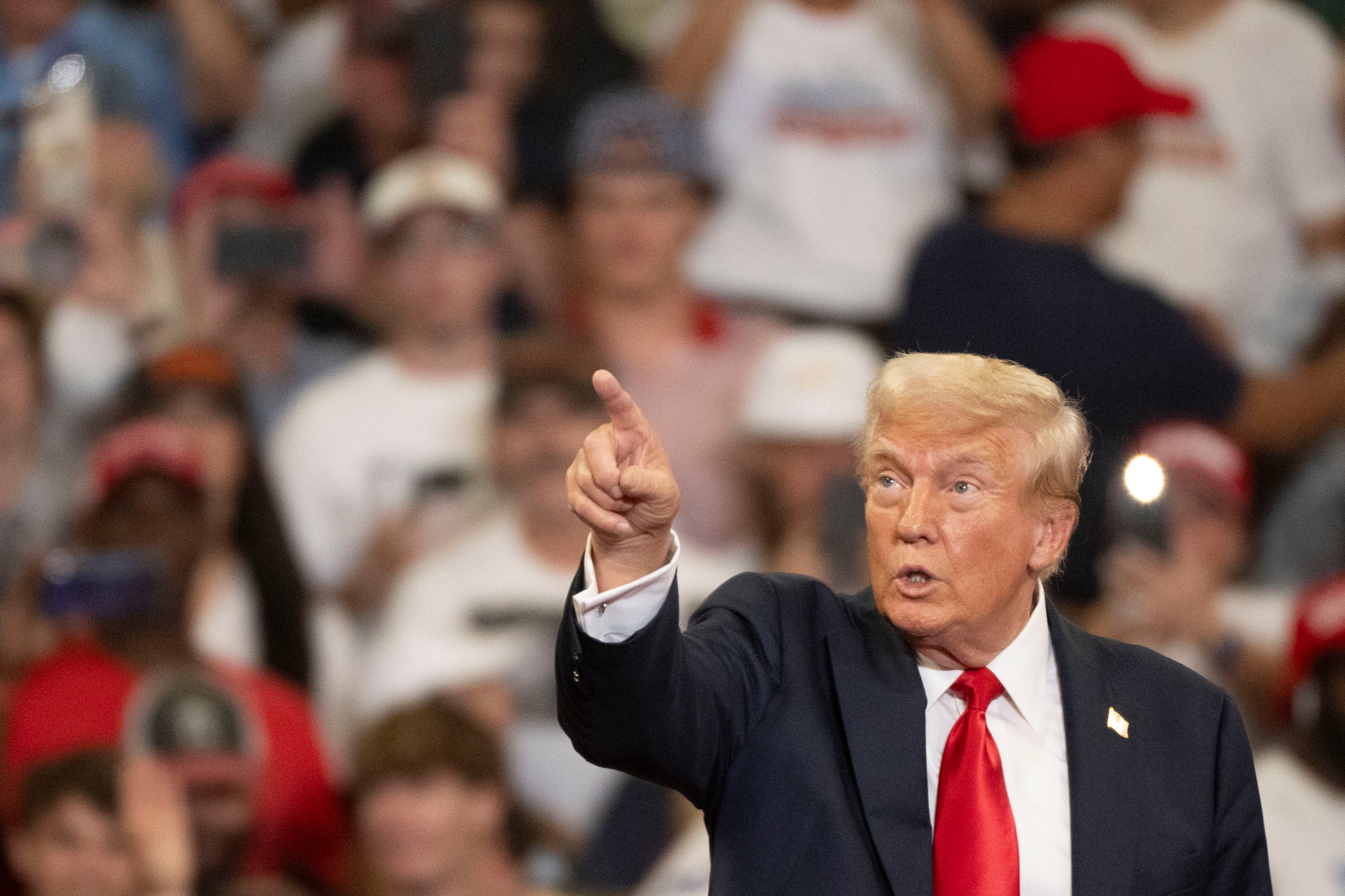Experts say Trump’s speaking style shows ‘potential indications of cognitive decline’
‘There’s reasonable evidence suggestive of forms of dementia,” clinical psychologist says after reviewing Trump speeches
Former President Donald Trump’s speaking style may reveal signs of cognitive decline, according to psychological experts.
An analysis by STAT - a media organization focusing on health - found that Trump’s common pattern of speech called tangentiality – jumping from topic to topic with few if any connections in between – is just one of a number of incoherent speaking habits that appears to have worsened in the last few years.
In 2017, Trump’s first year as president, STAT found Trump’s speaking style had worsened since the 1980s. In a repetition of that analysis, experts found that since 2017, Trump’s way of speaking has deteriorated further. The complexity of his speaking style has decreased and while the experts in memory, psychology, and linguistics who spoke to STAT noted that they couldn’t give a diagnosis without conducting an examination, several of them said some of the changes in the former president’s speaking style were possible signs of cognitive decline.
Before President Joe Biden dropped out of the race, the 81-year-old Democrat’s age and mental capabilities received the most scrutiny, particularly after his disastrous debate performance on June 27. But now, as Trump, 78, is running against Vice President Kamala Harris, 59, that focus is shifting towards the former president.
Trump has claimed to have “aced” cognitive tests and urged all candidates to take them.
“I want anybody running for president to take an aptitude test, to take a cognitive test. I think it’s a great idea. And I took two of them, and I aced them,” he told the National Association of Black Journalists last week.

During the 2024 campaign, Trump has appeared to mix up the names of Biden and his predecessor President Barack Obama, as well as the former UN Ambassador Nikki Haley and former House Speaker Nancy Pelosi. But even as those errors received heavy scrutiny, those mistakes aren’t significant, experts say.
“Everyone to some degree has some level of mixing up of names,” clinical psychologist Ben Michaelis told STAT.
Psychology professor Zenzi Griffin at the University of Texas at Austin noted that Nikki Haley and Nancy Pelosi are similar-sounding names which “makes it an easy error to make.”
But when experts viewed clips from 2024 and compared them to clips from 2017, they noted that Trump’s speech included more short sentences, a confused order of words, repetition and extended digressions. The causes could vary, some worse than others, including mood changes, trying to win over a certain group of people, natural aging or it could be the start of a cognitive condition such as Alzheimer’s disease, the experts said.
In an analysis for STAT, fellow University of Texas social psychologist James Pennebaker reviewed transcripts of interviews with Trump from 2015 until 2024. He found a major rise in “all-or-nothing thinking” which is signified by the use of words such as “completely,” “never” and “always.”
That trend could indicate depression, Pennebaker said, which also connects to his use of fewer positive words than earlier, and also his many references to negative emotions following his departure from the White House.
A rise in all-or-nothing thinking is connected to cognitive decline. Pennebaker told STAT that Biden’s all-or-nothing thinking has also increased.
Pennebaker noted that a linguistic metric of analytic thinking reveals that Trump’s levels of complexity are remarkably low – most presidential candidates range between 60 and 70 in the metric, while Trump ranges from 10 to 24, something Pennebaker called “staggering.”
“He does not think in a complex way at all,” he added.

Michaelis noted that Trump’s digressions have increased since 2017 and that it’s hard to “follow him.”
“You’d expect some cognitive diminishment, of course, he’s 78 years old,” he said.
He added that he couldn’t give a diagnosis but said that Trump’s speaking style is concerning.
“There’s reasonable evidence suggestive of forms of dementia,” he told STAT. “The reduction in complexity of sentences and vocabulary does lead you to a certain picture of cognitive diminishment.”
Boston University neurology professor Andrew Budson told the outlet that Trump’s digressions are likely connected to the frontal lobe, which is the part of the brain that is most affected by aging. The digressions could also be a sign of ADHD, bad sleep or it could be an indication of Alzheimer’s.
Budson noted that the repetitions could be a sign of lower efficiency in the frontal lobe but that it could take place with normal aging instead of a condition.
The Independent has contacted the Trump campaign for comment.
Subscribe to Independent Premium to bookmark this article
Want to bookmark your favourite articles and stories to read or reference later? Start your Independent Premium subscription today.


Join our commenting forum
Join thought-provoking conversations, follow other Independent readers and see their replies
Comments